Filter by
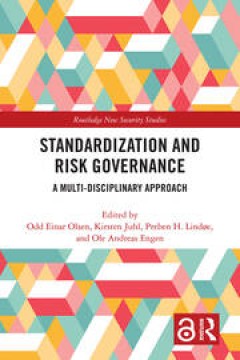
Standardization and Risk Governance : A Multi-Disciplinary Approach
This multi-disciplinary book conceptualizes, maps, and analyses ongoing standardization processes of risk issues across various sectors, processes, and practices. Standards are not only technical specifications and guidelines to support efficient risk governance, but also contain social, political, economic, and organizational aspects. This book presents a variety of standardization processe…
- Edition
- -
- ISBN/ISSN
- 9780429290817
- Collation
- -
- Series Title
- -
- Call Number
- 320

Broadcast 41 Women and the Anti-Communist Blacklist
Seeking a solution, pioneering women not only imagined, made and wore radical new forms of cycle wear, they also patented their inventive designs. The most remarkable of these were convertible costumes that enabled wearers to secretly switch ordinary clothing into cycle wear.
- Edition
- -
- ISBN/ISSN
- 9781912685424
- Collation
- -
- Series Title
- -
- Call Number
- -
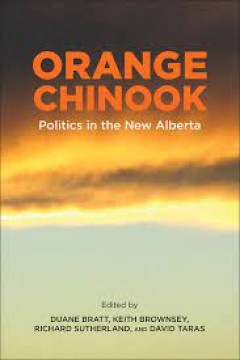
Orange Chinook Politics in the New Alberta
In 2015, the New Democratic Party won an unprecedented victory in Alberta. Unseating the Progressive Conservatives -- who had won every provincial election since 1971 -- they formed an NDP government for the first time in the history of the province. Orange Chinook is the first scholarly analysis of this election. It examines the legacy of the Progressive Conservative dynasty, the PC and NDP ca…
- Edition
- -
- ISBN/ISSN
- 9781773850269
- Collation
- -
- Series Title
- -
- Call Number
- -
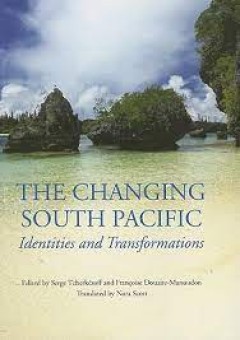
Changing South-Pacific Identities and Transformations
The texts collected in this volume take an anthropological approach to the variety of contemporary societal problems which confront the peoples of the contemporary South Pacific: religious revival, the sociology of relations between local groups, regions and nation-States, the problem of culture areas, the place of democracy in the transition of States founded on sacred chiefdoms, the role of c…
- Edition
- -
- ISBN/ISSN
- 9781921536151
- Collation
- -
- Series Title
- -
- Call Number
- -

Money Matters: Addressing the Financial Sustainability of Security Sector Reform
Although the financial sustainability of United Nations (UN) support to institutional capacity building in post-conflict contexts may be the least analysed topic on the peacebuilding agenda, understanding the costs of rebuilding and maintaining the security sector should be one of the most important priorities for security sector reform (SSR) practitioners today. Through innovative partnerships…
- Edition
- Ed. 1
- ISBN/ISSN
- 9781911529385
- Collation
- 35
- Series Title
- SSR Papers, 11
- Call Number
- 320 KEA m
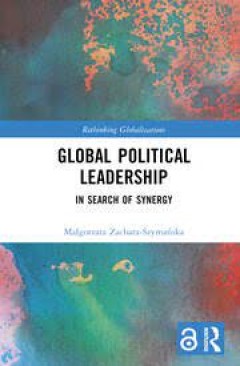
Global Political Leadership In Search of Synergy
Global Political Leadership explores contemporary shifts in leadership, and the related leadership crisis, in the global world. Globalization is now perceived as a threatening and hostile force, with many of its advocates and political supporters turning away from it, but its processes cannot be reversed. New powers emerge, old ones re-emerge, and uncertainty about the future global order is in…
- Edition
- -
- ISBN/ISSN
- 9781003166757
- Collation
- -
- Series Title
- -
- Call Number
- -

The "Democratic Soldier": Comparing Concepts and Practices in Europe
Since the end of the Cold War almost all European countries have reformed their armed forces, focusing on downsizing, internationalization and professionalization. This paper examines how these changes in security sector governance have affected the normative model underlying the militaryâ s relationship to democracy, using the image of the â democratic soldierâ . Drawing on a comparative an…
- Edition
- Ed. 1
- ISBN/ISSN
- 9781911529361
- Collation
- 64
- Series Title
- SSR Papers, 9
- Call Number
- 320 MAN d

Comparative Federalism and Covid-19: Combating the Pandemic
This comprehensive scholarly book on comparative federalism and the Covid-19 pandemic is written by some of the world’s leading federal scholars and national experts. The Covid-19 pandemic presented an unprecedented emergency for countries worldwide, including all those with a federal or hybrid-federal system of government, which account for more than 40 per cent of the world’s population. …
- Edition
- -
- ISBN/ISSN
- 9781000471311
- Collation
- -
- Series Title
- -
- Call Number
- -

Complexity, Security and Civil Society in East Asia: Foreign Policies and the…
Complexity, Security and Civil Society in East Asia offers the latest understanding of complex global problems including nuclear weapons, urban insecurity, energy, and climate change in the region. Detailed case studies in China, North and South Korea, and Japan demonstrate the importance of civil society and 'civic diplomacy' in reaching shared solutions to these problems in East Asia and beyo…
- Edition
- Ed. 1
- ISBN/ISSN
- 9781783741120
- Collation
- 470
- Series Title
- -
- Call Number
- 320 COM c
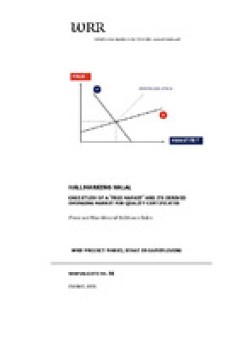
Hallmarking Halal - 56
De opdracht voor deze tekst is gegeven door de projectgroep Markt, staat en samenleving van de WRR. Een aantal externe auteurs werd gevraagd in detail te beschrijven hoe het afstemmingsproces van vraag en aanbod in praktijk werkt. In tegenstelling tot de theorie, vraag en aanbod, prijs en kwaliteit gebeuren niet automatisch; dit werpt een tweede vraag op, namelijk welke rol de overheid in dit p…
- Edition
- -
- ISBN/ISSN
- -
- Collation
- -
- Series Title
- -
- Call Number
- -
 Computer Science, Information & General Works
Computer Science, Information & General Works  Philosophy & Psychology
Philosophy & Psychology  Religion
Religion  Social Sciences
Social Sciences  Language
Language  Pure Science
Pure Science  Applied Sciences
Applied Sciences  Art & Recreation
Art & Recreation  Literature
Literature  History & Geography
History & Geography